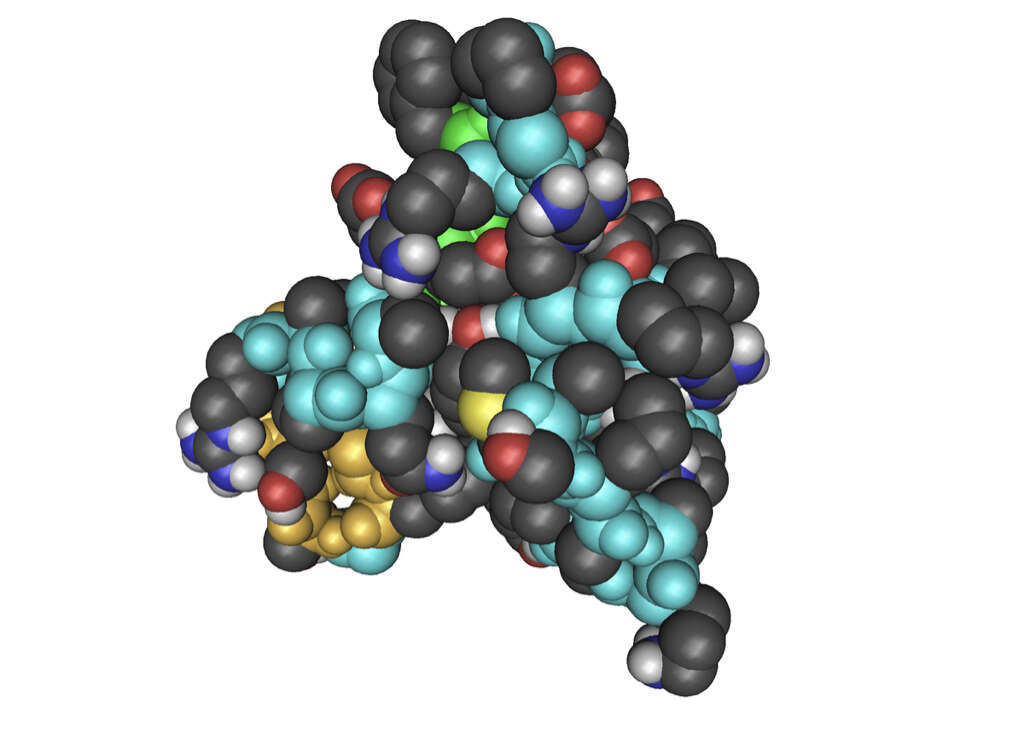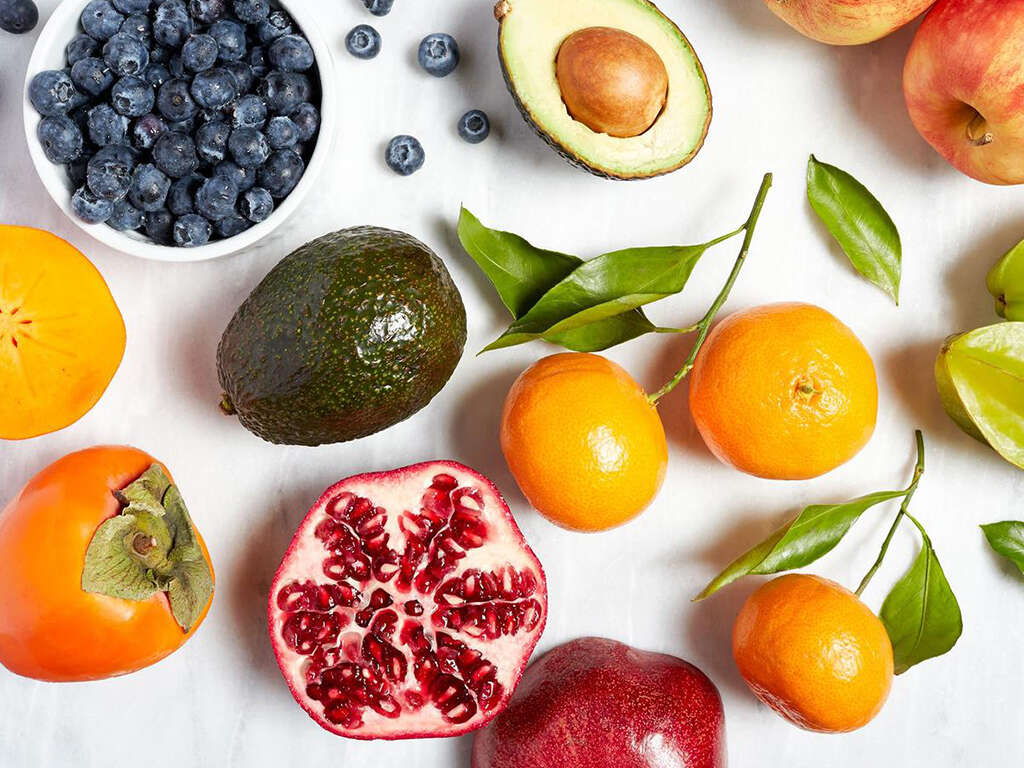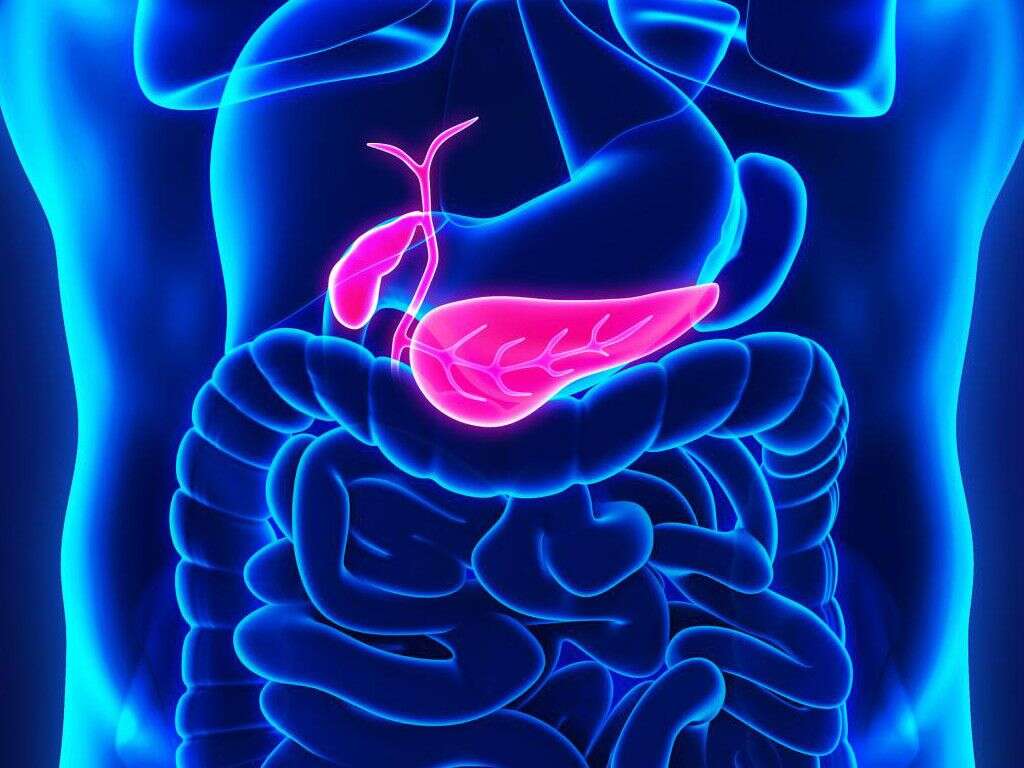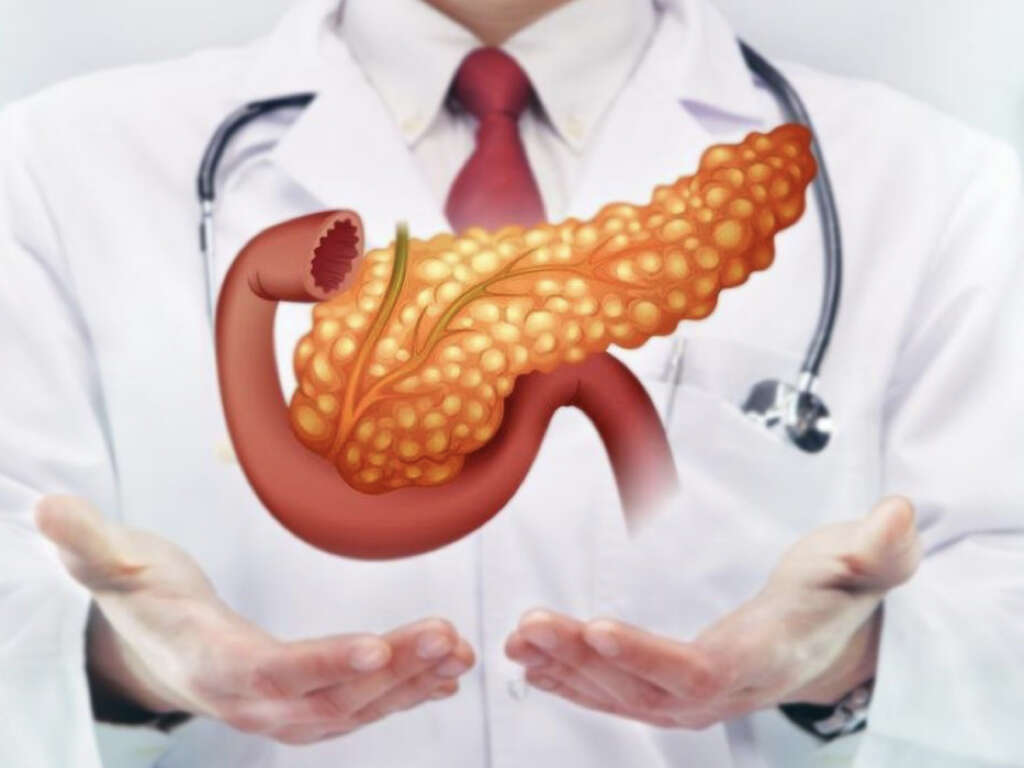What Does the Pancreas Do?
7. Insulin Hormone
Insulin is a hormone that controls blood glucose levels by aiding the entry of glucose molecules into the cells of different tissues. Insulin production usually increases after a meal, when the level of glucose in the bloodstream rises. Conversely, the production decreases when blood glucose levels dip. However, if the pancreas is not functioning properly, production of insulin may be affected. This can interfere with the absorption of glucose by cells such that blood sugar levels rise (hyperglycemia). In many cases, this leads to diabetes mellitus.
The tissues that require insulin for glucose uptake are adipose tissue (fat), skeletal muscle, and liver. In these tissues insulin has anabolic effects (building-up instead of breaking-down aspect of metabolism). For example, in the liver, insulin promotes glycogen synthesis or glycogenesis (the main form of storage of glucose in the body), increases protein synthesis, and triglyceride synthesis (lipogenesis). At the same time, it inhibits the breakdown of glycogen (glycogenolysis), fats (lipolysis)and proteins in these tissues.
Advertisement












